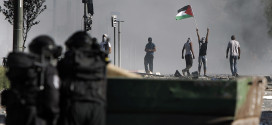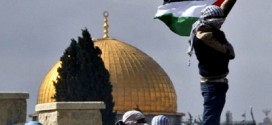In the wake of the reelection, so farcical it drove every self-respecting, democratic man to absolute disgust, what could the dictator’s next steps possibly be?
The Assad regime and its officials, namely Bouthayna Chaaban and Faysal el Mokdad, among others, have insisted on insulting the intelligence of the people by claiming that France, as well as the entire democratic world, should look to the Syrian Government as an example from which to learn the meaning of true democracy. And why shouldn’t they when the elections were overseen by officials issued from countries so well-known for their honesty, integrity, democracy and utmost respect for human rights such as North Korea, Mozambique, Russia, Iran, Iraq, Algeria and Somalia ?
Now that the criminal government of Damascus thinks it has restored its image in the eyes of international public opinion, it seems to believe that they can no longer be held accountable for the blood shed caused by thousands of deaths, or for the suffering of millions of refugees. Now that these “elections” have taken place so democratically, clearing their conscience of the atrocities they have committed over the past 3 years, including sectarian purges, mass executions, arrests, expulsions and barbaric tortures that have rewritten History, what are the tyrannical dictator’s internal, regional and international plans for the future?
On an internal level and with the political context in mind, Bashar Al Assad has called upon some of the officials he had previously sent to infiltrate the opposition. During their stay abroad, the officials worked diligently and succeeded in sowing discord, dismantling any form of national organization opposing the regime. Assad then ordered them to form a new opposition; one that was loyal to the government, just like his father, Hafez Al Assad, had once done when he formed the National Progressive Front using associates, social climbers and mercenaries.
Today, Bashar Al Assad wants to convince the world that he is the only one who can provide a peaceful solution to the Syrian crisis. This is exactly why he will soon summon his officials from the new “opposition” for a conference to open a national dialogue. These officials will accept an offer to form a “national unity government” whose sole purpose will be to implement the feeble reforms already agreed upon by the regime since the beginning of the revolution. The creation of this government will be an undeniable national achievement for Assad for which he will dedicate all his resources in terms of media and public relations to promote. Of course, he will also use any journalists he can find that work for international papers or institutions claiming to work in documentation, research and statistics. The message that the tyrant wants to send to the world is, in short, that there is no need for international intervention be it from Geneva, New York, Moscow, Washington or Paris as the solution to the crisis is a political one and can only be found in Damascus.
On a military level, Assad will build on the Western, particularly the American, hesitation to put an end to the crisis and will continue to outdo himself with even more destruction, killing, besieging and starvation of his own people. He will maintain his strategy of sectarian abuse and massacres to drain any energy the opposition may have and increase the suffering of the Syrian revolutionaries, both citizens and soldiers alike.
Assad will work towards breaking the will of the revolution by infiltrating the opposition, dividing its ranks and weakening it by dismantling its structures and buying the loyalty of some if its members. Worst and perhaps the most important of all, is the fact that the regime will push for the declaration of a sectarian civil war that will terrify the minorities and endanger the Alawites. In order to do this, the regime will create brigades composed of young Alawite men and women and order them to carry out sectarian massacres and murderous operations targeting innocent children and senior citizens. They will also encourage terrorist and extremist organizations and their allied military factions to continue committing their heinous crimes against the Syrian people and the minorities among them, kidnapping strangers and innocent bystanders and enlisting Europeans and Americans to join them on the way.
On a regional level, Assad will continue to make use of the factions provided to him by Hezbollah and its sectarian militias, as well the Iranian Bassijis and the sectarian Iraqi army headed by Maliki, in the hopes of keeping the entire territory under control all while committing the worst kinds of atrocities possible. All of this aims to force the Syrians into exodus and achieve a drastic change in the demographic distribution of certain regions with the insertion of Lebanese, Iranian and Iraqi people that are more partial to the regime. This, in turn, will create a sort of protective belt for the regions across the coast of Syria, reaching Damascus and passing through Homs as well as the Syrian-Lebanese border.
In Lebanon, the regime, thanks to its allies, will hinder the election of a new president unless the latter either belongs to the March 8th political party, or is independent but loyal to Damascus. Bashar Al Assad will ensure that the frail interim government of Tammam Salam as well as the consistently tense situation of instability and fear due to the conflicts between the various Lebanese political parties, continue to dominate and cripple the country.
In Iraq, the regime will fuel the already existing chaos and sectarian murders, but calm them whenever it best serves the regime’s interest in order to ensure that Iraq does not become a democracy that supports the struggle of the Syrian people.
In Turkey, the Syrian regime will again encourage the existing instability and support the Turkish opposition by using its close relations with certain Kurdish factions.
In Saudi Arabia, Assad will attempt to engulf the north and east of the country as well as pushing the Yemeni Houthis to carry out operations on the border, all within the limits specified by the regime in Teheran.
The dictator will also try to standardize relations with certain Arab countries, namely Egypt. Under the pretext of a combined political initiative including countries such as Egypt itself, Lebanon, Kuwait and Algeria, the League will aim to end the Syrian Crisis. Through Egypt, Assad will aim to pressure the Arab League so as he may regain his place in its center, just as the fate of the Syrian crisis has been placed in the hands of the League. It also just so happens that the foreseen successor to Lakhdar Ibrahimi, the man currently in charge of the League’s dossier for the Syrian Revolution, is none other than Assad’s close personal friend Amr Moussa.
On an international level, the regime will make the most of the political status quo that currently prevails as well as the regional and international conflicts that are fueled by a large number of political cases. All of this comes at a time where the world’s greatest power is barely living up to its status and instead, is happy to run the crises rather than solve them. Syrian intelligence will aim to encourage Daesh and Al Qaeda as well as other extremist groups that are friends to the regime to welcome European and American extremist and train them. These trained western extremists will serve both as time bombs that the regime can use to threaten the West at a later point and as proof that the alternative to the Assad regime is none other than terrorism and utter chaos.
This policy will allow the regime to increase any fears the West may already have towards anything coming from Syria, especially if these extremists carry out attacks targeting a large number of victims when they return to their western soil. This will undoubtedly mean that the western allies will limit Syrian immigration, or even ban it completely. Facing such a development, the revolutionary movement, in its desperation, will have no choice but to accept the skewed dialogues and negotiations of the regime’s agenda.
Hence, the democratic opposition should, above all, be aware of the difficulty of the challenge it faces and the complexity of its cases. It should solve its internal problems and unify both politically and militarily as soon as possible in order to successfully form the core of a national army that will put a stop to sectarian conflicts in the country. This army should be formed so as to gain the trust of the friends of Syria in order to obtain quality weapons that will allow it to rid the country of the terrorists and extremists that are sabotaging it with sectarian agendas. It will also conquer Assad’s army allowing the country and the people to see the dictator and his collaborators stand before the international Criminal Court and finally face justice.
 العربي الديمقراطي The Latest From The Arab World
العربي الديمقراطي The Latest From The Arab World





